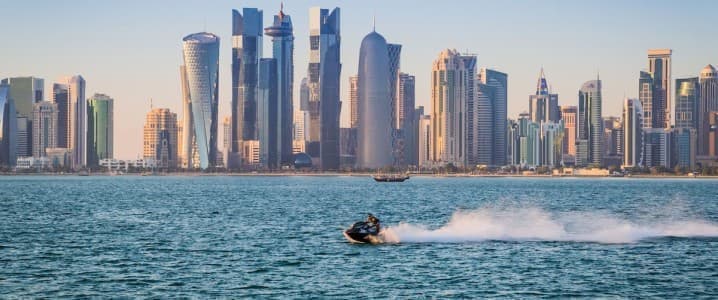
That TotalEnergies and Eni were the first two international oil companies chosen for key roles in this key project may not just be a reflection of their undoubted capabilities as oil and gas operations, but may also reflect the onus that Qatar is placing on positioning itself as the ‘go-to’ emergency gas supplier for Europe, given the energy supply constraints that are likely to arise from its intended ban on Russian energy this year. Not only are both companies very highly regarded and well-favoured oil and gas firms by the European Union (E.U.) but they are also seen as “our own firms, particularly TotalEnergies,” as a senior energy source in the E.U. exclusively told OilPrice.com last week. “Germany is effectively the economic leader of the E.U. but France could be termed the ideological leader of it, having pushed for the ‘Treaty of Paris’ in 1951, which can be seen as the precursor to the European Economic Community and then the European Union itself,’ he said. “TotalEnergies is seen by some senior members of the E.U. as sometimes fulfilling a role that straddles both economic and political agendas, although this operates on a level distinct from the company itself,” he told OilPrice.com. TotalEnergies also put itself in a very advantageous position from both Germany’s and Qatar’s perspectives by announcing early on after the war in Ukraine that it would no longer be investing in any new project in Russia.
For Qatar, tying up supply deals in Europe in preparation for the loss of at least some Russian oil (and gas) supplies in the future is a sound strategy for ensuring that the political will and financial backing for its North Field Expansion project continues to its completion in 2027. For around five years before these new deals were signed with TotalEnergies and Eni, state-run QatarEnergy had been waiting to finalise various partnership agreements, although it has stated that it could finance the entire project itself if required. Other international oil companies that have been bidding for inclusion in the four trains of the North Field East Expansion and/or the other two trains involved in the second phase, North Field South Expansion project, include ExxonMobil, Shell, and ConocoPhillips, according to the E.U. energy source. Qatar sees an even split of buyers for the LNG volumes from the expansion projects, according to al-Kaabi, with Asian buyers expected to make up half the market and buyers in Europe the rest. In this vein, QatarEnergy awarded the engineering procurement and construction contract for the North Field Expansion project to a joint venture between Spain’s Tecnicas Reunidas and China’s Wison Group.
In the shorter-term, the plan is that new LNG supplies from Qatar would come into Germany through existing importation routes augmented by new infrastructure approved by the German Bundestag on 19 May. This includes the deployment of four floating LNG import facilities on its northern coast, and two permanent onshore terminals, which are currently under development, according to the E.U. energy source. These plans will run in parallel with, but are likely to be finished significantly sooner than, plans for Qatar to also make available to Germany sizeable supplies of LNG from the Golden Pass terminal on the Gulf Coast of Texas. QatarEnergy holds a 70 percent stake in the Golden Pass terminal project, with ExxonMobil holding the remainder. The Golden Pass terminal’s estimated send out capacity will be around 18 million metric tons per year (mtpy) of LNG and the facility is expected to be operational in 2024.
This said, there remain doubts over the degree to which Qatar’s LNG can replace the oil and gas that has historically flowed into the E.U. from Russia. As highlighted by OilPrice.com, last year Germany imported 142 billion cubic metres (bcm) of gas in 2021, down 6.4 percent from 2020, an average of around 12 bcm per month (although real month-by-month use would not reflect this arithmetical mean average due to differing seasonal usage). As a guide, according to data from Independent Commodity Intelligence Services (ICIS), for the month of December 2021, natural gas coming via pipelines from Russia amounted to 32 percent of Germany’s total imports that month, followed by supplies from Norway (20 percent of the total) and the Netherlands (12 percent of the total). Using this December percentage gives a figure for the entire year of just over 45 billion cubic metres of natural gas being imported by Germany from Russia, which equates to just under 33 million metric tons of LNG, or just over 40 million tons of oil equivalent. The 33 million metric tons of LNG for the year for Germany alone from Russia compares to the entire Golden Pass figure over the year of 18 million metric tons per year of LNG.